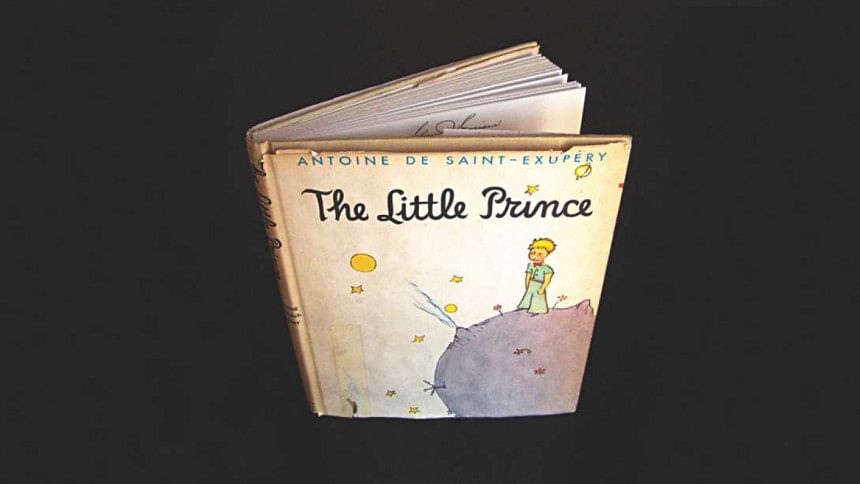A book worth reading thrice: The Little Prince

I came across this gem of a book by a complete chance of fate. I bought it as a present for my little sister's birthday. She was desperate to have me read it as soon as she was done. Given my penchant for children's books and the beautiful drawings both on the cover and inside, I dove right in.
The Little Prince is written by the French author, Antoine de Saint-Exupéry. I expected it to be good, but little did I know that it would turn out to be one of my all time favourites. Every chapter in this book has a unique lesson; every encounter is an allegory. It is whimsical and magical; and yet, it very much depicts the human condition in a way that it is poetic but unpretentious. Intertwining the tales of a pilot who crash lands on the Sahara Desert and the Little Prince from asteroid B-612, Saint-Exupéry created a masterpiece that has lived in the hearts of adults and children for decades. However, owing to the fact that it's a classic and tackles so many different themes at once, it has to be one of the most difficult books to describe.
The story begins with the pilot (narrator), telling us about his sheer disappointment with grown-ups and their lack of imagination. The pilot is stranded on the desert where he meets the Little Prince. The Little Prince appears one night, startling the pilot awake with an odd request. The man hesitantly helps the boy and slowly, a friendship develops between the two.
It was fascinating to discover that the tiny, golden-haired boy had come from an asteroid no bigger than the size of a house. We read about his adventures prior to his encounter with the pilot. For the longest time, the Little Prince lived alone on his planet. Until, one day a rose seed arrived, and the Little Prince decided to nurture it, falling deeply in love with it in the process. But instead of curing his loneliness, the rose seemed to cause him more pain. So he decided to leave his rose and set out on a journey to explore other planets.
During his journey, he encountered strange and narrow-minded grown-ups. For instance, he met a king whose only subject was a rat, and a businessman who counted the stars, claiming that he owns them. All those grown-ups had convinced themselves that they were "concerned with matters of consequences". It shows us how upon growing up, we lose perspective and delude ourselves into believing that our jobs (no matter how mundane) are of the utmost importance, and how we become conceited and unobservant.
The story also teaches us that we may come across many people in our lives, but only when we "tame" another person, does he or she become unique to us. That to be responsible for another person is to accept the fact that he/she may be fragile, vain and even ordinary.
One of the things that really caught me off guard about the book is its ending. I couldn't understand why the writer would choose such dark themes for a children's book. But while discussing the plot with my 9 year old sister, I found that she perceived the story completely differently. She had a rather humorous and light-hearted take on the story. I suppose that is the real magic of this book.
After finishing the book, I decided to read the author's biography. I was both baffled and crushed by the resemblance of the author's life and the plot of the story. It felt to me as though, with this book, Saint-Exupéry left a little piece of himself to us.
The Little Prince is definitely worth reading thrice, once as a child, once as an adolescent and finally as an adult to keep reminding ourselves about what's truly important in our lives.
Farah Masud is a humanbean and that is all you need to know about her. Please don't try to contact her anywhere, especially not in person.

 For all latest news, follow The Daily Star's Google News channel.
For all latest news, follow The Daily Star's Google News channel. 



Comments